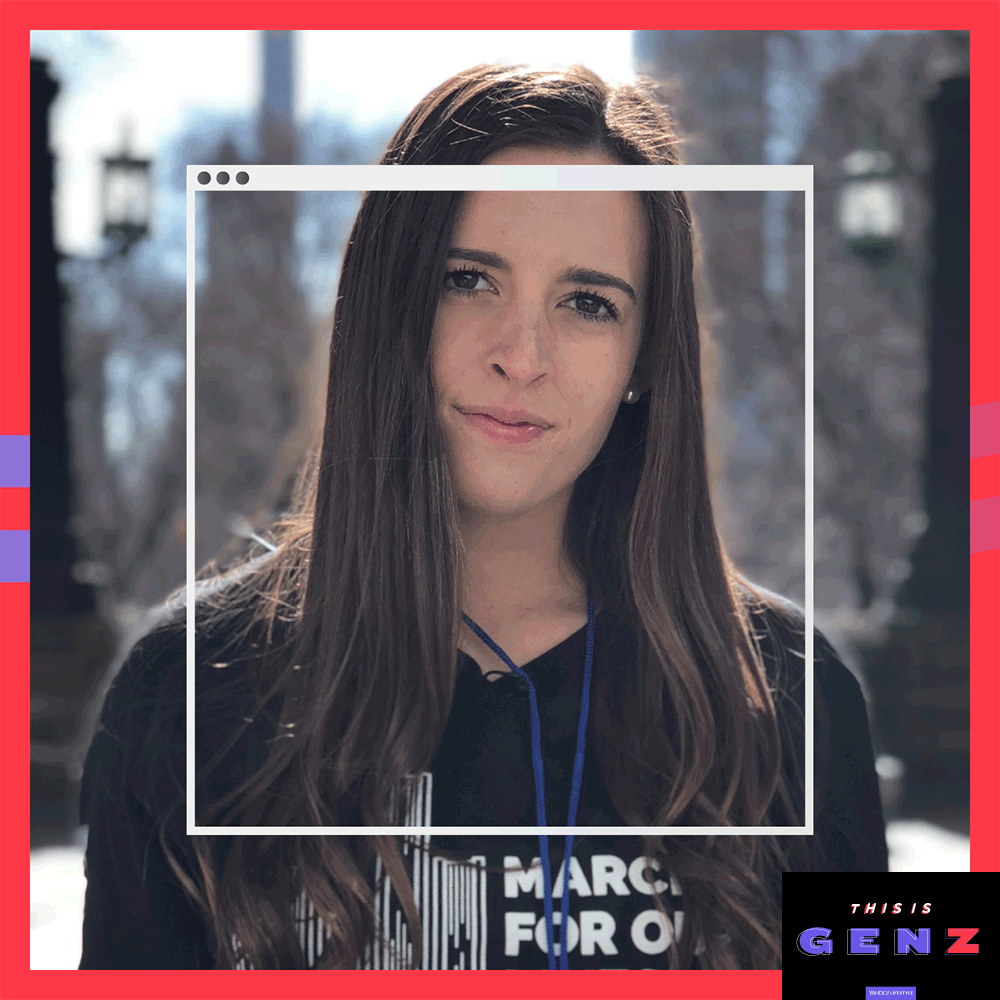This 9/11 kid built a community for Sept. 11 survivors around the world to talk about grief and healing

When Delaney Colaio was just 3 years old, her father died in the Sept. 11 terrorist attacks on the World Trade Center in 2001. Soon after, her mother moved to the suburbs of New York City, where Colaio, now 19, was raised.
Growing up outside of Manhattan, Colaio was one of three kids in her class who had lost a parent on that day. “I guess they were my sense of community on that topic, but at the same time, we never really wanted to talk about it,” the college student, who recently completed her freshman year, says about finding people to relate to. “It was a weird situation like we knew we had something in common but like we didn’t want to talk about it.” She adds, “It’s not really a group you want to be a part of in the first place, so it’s hard.”
But after being interviewed for a film on a “really tough topic and something that I had went through in my life that was really hard for me,” Colaio came out of the experience feeling inspired “to give all of that pain a purpose for the first time and for something that’s greater than myself.” So she decided to make her own documentary (while still a senior in high school, mind you), about the 3,051 children who lost a parent on 9/11.
A post shared by Delaney Colaio (@delaneycolaio) on Jun 21, 2015 at 8:25pm PDT
First, she contacted Tuesday’s Children, the de facto nonprofit for families affected by the terrorist attacks, to be connected with the thousands of people — greatly ranging in ages from those whose mothers were still pregnant with them on the day of the attack (who’d be teenagers today) to some who are now in their 50s — to be interviewed for the film.
Throughout the process of finding people willing to be interviewed for the film, she unintentionally created the community she had been aching to connect with for years. “Like through this community I’ve created a family and a support system that I don’t know how I grew up without honestly,” she says. “If I did have that community growing up, then I would have never built this one.”
While being a card-carrying member of the Dead Parents Club isn’t something most people like to boast of, bringing the members of the 9/11 group together is actually what Colaio is most proud of having accomplished in her life so far. But she is not stopping with the current 3,051-person roster.
Colaio hopes to use her pain to inspire hope and healing in survivors from all over the world. Recently, she met Naomi Wadler, the 11-year-old who spoke at the March for Our Lives rally in March in Washington, D.C., and traveled to Parkland, Fla. to talk with Marjory Stoneman Douglas High School students. She’ll also be spending her summer meeting and speaking with members of other survivor communities from Newtown, Barcelona, Manchester, Las Vegas, and elsewhere.
And while talking about trauma and grief is always going to be hard for Colaio, she says, “I think that there is a level of comfort talking to people who understand.” Adding, “I realize that even though all of the things that we went through are not the same, and our survival after what we went through isn’t the same, the pain of losing a loved one and the pain of trauma basically is.”
Name: Delaney Anne Colaio
Age: 19
Favorite app: Instagram. I know that’s so generic, but it really is the one I use the most.
What she does: I’m a documentary filmmaker.
Three words she’d use to define Gen Z: Motivated. Prepared. The future.
A post shared by Delaney Colaio (@delaneycolaio) on Apr 30, 2018 at 8:08pm PDT
What she wishes older people understood about Gen Z: That we’re capable right now and not that you should listen to us but that you can listen to us. Because even though we’re young, we do have a lot of insight. Even though we’re young, we do have a lot to offer right now and that we’re not really wanting to wait until we get older to do stuff.
How she thinks Gen Z will change the world: Oh my God — in so many ways. I mean it’s a whole new generation of people coming forward into the world and bringing whatever they have to that. So for me it’s the creative arts, but for other people it can be technology or business or whatever it may be, and it’s just a whole new generation. So obviously we’re going to change the world because we’re already here.
A post shared by Delaney Colaio (@delaneycolaio) on May 20, 2018 at 7:21pm PDT
What she sees herself doing in 10 years: I don’t really know. I think that I’m the type of person that kind of takes it day by day and whatever kind of gets thrown at me, I try to take on, so I don’t know. I honestly don’t know where I’m going to be; I just hope that I’m feeling fulfilled in whatever I do. So it could be anything, I don’t know.
And in 20 years: I think that right now we’re really living in a fear-based society. And I hope that in the next decade that decreases and we’re living from a more purpose- and love-driven space than fear.


